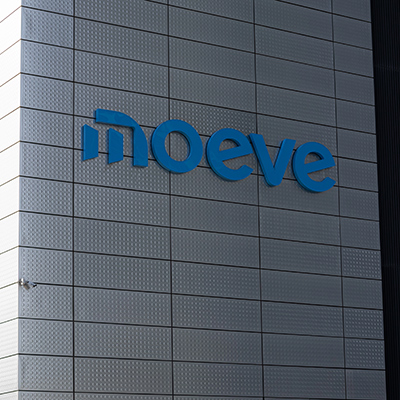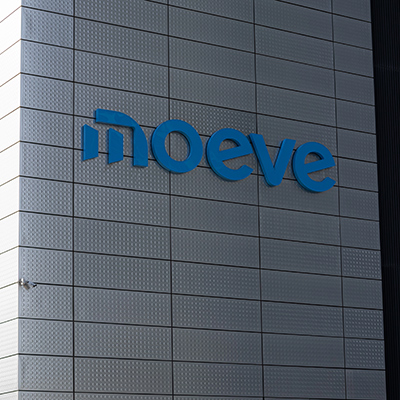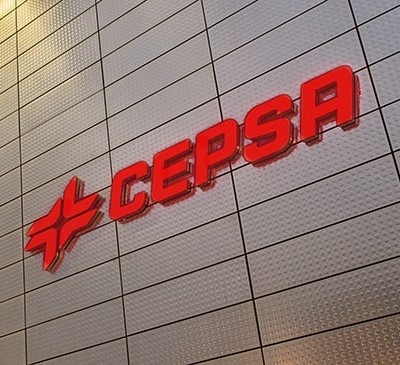- 2022 Clean CCS EBITDA was €2,939m versus €1,815m in 2021, an increase of 62% driven by improved market conditions, higher underlying commodity prices, increased refining margins and optimization initiatives that continued to contribute to improved performance in all businesses and functional areas
- 2022 CCS Net Income was €790m (IFRS €1,100m), a significant improvement versus €310m in 2021 (IFRS €661m), underpinned by a recovery in demand against a constrained supply oil and gas market leading to higher crude and natural gas prices
- Capex spend for 2022 increased 57% to €743m (€473m during 2021) in the framework of the Company’s Positive Motion strategy. As part of its ambition to turn Spain into a green energy powerhouse, the Company plans to develop projects with total investments in excess of €3.6bn in the next three years, of with more than 50% will be devoted to sustainable businesses. This amounts to a 93% increase in investment compared to the last three years
- In 2022, Cepsa’s total tax contribution reached €6,654m, an all-time record in the history of the company, of which 71% or €4,721m were paid in Spain. In addition, during 2023, Cepsa will pay the extraordinary tax imposed on energy companies based on 2022 revenues, which will be c.€325m. This charge was not reflected in the 2022 results
- During the complex inflationary environment of 2022, Cepsa offered special fuel discounts over and above Government discounts, totaling €130m in support of its customers
- Significant reduction in leverage from 1.6x Net debt to EBITDA at the end of 2021, to just below 1.0x at the end of 2022 and strong a liquidity position of €4.0bn, covering debt maturities until 2027
Maarten Wetselaar, Cepsa CEO
“As I look back over my first year as CEO of Cepsa, I am struck by how much has been achieved with our strategy ‘Positive Motion’ in such a short time. We committed to transform the Company into a leading producer of green energy by 2030 investing 7-8 billion euros, and I am confident that we will reach this target. We must of course be able to fund our strategy and our results for 2022 lay a foundation for this.
In a year of tremendous geopolitical and economic uncertainty, high prices and growing concern over energy supply and climate targets in Europe, we managed to cushion the impact of the energy crisis on our customers and remain focused on our strategy. We moved at pace in 2022, signing constructive and ambitious partnerships to develop decarbonization solutions for Europe’s energy needs, continuously pushing the maritime, aviation and transport sectors to adapt and meet this challenge. With Cepsa’s support, Spain will become one of Europe’s leading green hydrogen and second-generation biofuels producers as the world shifts to alternative clean energy sources, making Spain an energy exporter for the first time.
None of these achievements would be possible without the highly skilled and committed Cepsa team, who I am happy to say is also increasingly diverse as we add more women to leadership positions. I want to thank each of them for continuing to push our Positive Motion strategy forward as we accelerate the energy transition in Europe.
In this regard, I am also happy to highlight the launch today of Cepsa’s new Sustainability Plan, ‘Driving Positive Impact’, which brings together our commitments to deliver transformational progress in areas such as carbon reduction, diversity, circularity, water preservation and biodiversity, as well as in safety and ethical behavior. Our direction of travel is clear.”
Positive Motion Strategy - Key Milestones
Following the launch of its Positive Motion strategy in March 2022, Cepsa has delivered a number of key milestones as part of its plan to invest between €7 and €8bn to become a leader in sustainable mobility, green hydrogen and second-generation biofuels in Spain and Portugal this decade, including:
- The launch of the Andalusian Green Hydrogen Valley
- The start of second-generation biofuels production in Huelva
- Sale of upstream assets in Abu Dhabi to TotalEnergies
- The development of close to 2 GW of renewable power
Among other achievements in 2022, in December Cepsa announced plans to develop the Andalusian Green Hydrogen Valley, the largest green hydrogen hub in Europe, and an agreement with the Port of Rotterdam to create the first green hydrogen corridor between southern and northern Europe. In September, Cepsa started to produce second-generation biofuels with used cooking oils and other waste at its industrial facilities in Palos de la Frontera (Huelva), an important step in the Company’s transformation toward a more sustainable energy model and its ambition for annual biofuels production 2.5 million tons in Spain and Portugal.
Cepsa hired 850 new employees in 2022 to drive its Positive Motion strategy and tripled the incorporation of women versus 2021, putting the Company on track to meet its goal for at least 30% of leadership positions to be held by women in 2025. Over the course of the decade, it plans to create 10,000 direct and indirect jobs in Andalusia alone.
Today Cepsa launched “Driving Positive Impact”, Cepsa’s Sustainability Plan. Developed to drive the implementation of Positive Motion, it ensures that Cepsa’s key stakeholders have a clear understanding of it strategic direction and priorities. Alongside the net zero and gender diversity targets, Cepsa’s Sustainability Plan includes commitments to increase the circularity of its waste streams by 50% in 2030, start the production of green hydrogen with recycled waste water and reduce its freshwater withdrawal in water-stressed areas by 20% by 2025. The document also reflects Cepsa’s leading positions in major third-party ESG ratings such as Sustainalytics, S&P CSA, Moody’s and Clarity.
Market Environment
Crude prices in 2022 increased significantly compared to the previous year, averaging $101.2/bbl during the period, an increase of 43%. The year-on-year rise was primarily attributable to supply constrains in the crude market, exacerbated by the Ukraine conflict which reduced the supply of barrels from Russia into Europe and other global markets. Crude prices in Q4 2022 were 12% lower than the previous quarter (Q4’22 $88.7/bbl vs Q3’22 $100.9/bbl) as economic uncertainty and an increase in crude supply softened the highs seen in previous quarters.
Refining margins for the full year 2022 were an average of $9.6/bbl, 160% higher than the 2021 average margin of $3.7/bbl. The significant increase in refining margin levels from 2021 was mostly driven by acute supply shortages due to the sanctions imposed on Russia and a general decrease in refining capacity over the last few years in Europe in what has been an extremely volatile environment. The Q4’22 average refining margin was $8.7/bbl, a 10% increase from Q3’22 levels (Q3’22 $7.9/bbl, Q4’21 $3.8/bbl) mainly associated with strengthening demand for products in Europe.
As crude prices saw abnormally high levels due to the Ukraine crisis in 2022, natural gas was yet more volatile with an average TTF natural gas price of 120.5 €/MWh seen over 2022, a 90% increase on the average 2021 price of 45.7 €/MWh. As many of Europe’s nations relied heavily on Russian natural gas supplies, the intermittent supply balance and critical inventory levels meant that global natural gas prices were severely affected. A relatively mild winter in Europe and a partial balancing of global gas markets meant that prices for natural gas lowered from the highs of 339 €/MWh seen in August of 2022 to an average of 94.4 €/MWh in Q4 2022 (a decrease of 52% from Q3’22 average prices of 196.2 €/MWh).
Spanish fuel demand increased vs 2021 by 4%, as the Covid-19 restrictions were removed allowing transportation levels to return to normalized levels seen pre the Covid-19 pandemic. Spanish pool prices decreased vs Q3’22 to an average of 113.2 €/MWh (-23% vs Q3’22 and -46% vs Q4’21).
Results Breakdown FY 2022
Clean CCS EBITDA for 2022 was €2,939m versus €1,815m in 2021, an increase of 62% driven by improved market conditions and significantly higher underlying commodity prices and refining margins. Cash conversion for the year was significantly lower than the previous year due to increases in taxes paid, particularly in the Upstream business as the Group saw a 24% increase in cashflow before working capital from 2021 figures. Capex increased to €743m in 2022, an increase of 57% from 2021, with sustainable capex making up €185m of total spend. Free cashflow decreased slightly to €901m compared to €915m in 2021 with net debt of €2.756bn at the end of 2022, a similar level to the end of 2021 (2021 net debt €2.759bn).
- Energy (Commercial & Clean Energies, Mobility & New Commerce, Energy Parks and Trading). CCS EBITDA for the segment stood at €828m in 2022 (€570m in ’21), mainly as a consequence of the improvement in the Energy Parks business. Refining margins during the year averaged 9.6 $/bbl, due to increased underlying crude prices and increased refined product demand. Commercial sales remained flat at 17.7 mtons. Since April 2022, Cepsa has been offering special fuel discounts whereby customers have received up to €50 cts/l, of which €20 cts/l were covered by the Government of Spain and an additional €30 cts/l obtained through Cepsa’s discounts, allowing over 12 million customers total savings of €130m.
- Chemicals registered weaker results compared to 2021, with Clean CCS EBITDA down 17% versus 2021 to €382m, due to an 15% decrease in product sales compared to 2021. Towards the latter parts of the year margins were put under pressure by escalating gas and electricity prices, especially in the Phenol/Acetone segments. The chemicals business saw lower demand and lower margins throughout the year compared to 2021, however compared to historical performance, the business remained within expectations.
- Upstream. CCS EBITDA nearly doubled to €1,868m (+106% vs 2021) mainly due to materially higher crude prices vs 2021 (+43%) on the back of demand recovery and supply constraints, partially due to the conflict in Ukraine. Cash conversion in the Upstream division was significantly impacted by a higher tax burden. Working interest crude production remained strong with an average of 82.8kbopd, a 12% increase from the 2021 production average. Natural gas sales were down by 26% in 2022 compared to the previous year, as the exceptionally high TTF natural gas prices reduced volumes.
This financial year, Cepsa has made significant and pioneering progress on its 2030 Positive Motion strategy, through which it has committed to reduce its Scope 1 and 2 emissions by 55% and its carbon intensity index by 15-20% by 2030, some of the most ambitious targets in the sector, with the goal of reaching net zero emissions by 2050.
As proof of its commitment to reduce carbon emissions and increase gender diversity, in October Cepsa converted its benchmark €2.0bn syndicated revolving credit facility into a sustainability-linked financing, the first of its kind in Cepsa’s history. The company made strides in diversifying its leadership in 2022, with around 27% of leadership positions now held by women, on track to its goal that 30% be held by women by 2025.
Cepsa’s work on its Positive Motion strategy has continued into 2023, with the Company announcing a string of new partnership agreements related to the Andalusian Green Hydrogen Valley, key to boost the decarbonization of industry and heavy land, air and maritime transportation in the region. These include agreements with EDP, Enagás Renovable, Alter Enersun and Fertiberia. The Andalusian Green Hydrogen Valley, the largest green hydrogen project in Europe, was among the new signatories announced by the World Economic Forum at the Annual Meeting in Davos 2023 to decarbonize industrial clusters. In February, Cepsa signed an agreement to supply green ammonia to ACE Terminal in the Port of Rotterdam, helping to create the largest import terminal of its kind in Europe.
Over 2022 Cepsa announced partnerships with a number of major airlines to drive the development and production of sustainable aviation fuels (SAF), including agreements with Grupo Iberia, Vueling, Air Nostrum, Binter, TUI, and Etihad. In addition, for a week in November 2022, Cepsa supplied SAF to more than 200 flights departing from Seville Airport, amounting to about 10 round-the-world trips (400,000 kilometers), the equivalent of planting 2,500 trees, preventing the emission of more than 200 tons of CO2.
During the year, Cepsa worked to deliver innovative projects to accelerate the decarbonization of maritime transport. In October, the Company successfully carried out the first trial in Spain of second-generation biofuels (2G) in one of the ships used by the Company. The use of this energy source can reduce CO2 emissions from maritime transport by up to 90% compared to the use of conventional fuels. In addition, Cepsa became the first energy company in Europe to operate a diesel-electric hybrid barge to supply marine.
At Cepsa Chemicals, the Company launched a new family of sustainable chemicals products and supplied Unilever with the world’s first renewable LAS surfactant, contributing to the sustainable development of the chemicals industry.
To boost sustainable mobility, the Company made progress on the rollout of a network of ultra-rapid EV chargers at its service stations in Spain and Portugal in alliance with Endesa. Cepsa’s stations will be transformed into digitized multi-mobility spaces with a variety of ultra-convenience and catering services.
In May, Cepsa started the dismantling of its refinery in Tenerife and announced an investment of €400m in the Canary Islands during this decade to continue to secure the supply of energy to the archipelago, provide greener and more sustainable energy, and accelerate the transition to sustainable mobility.
Among other milestones this year, Cepsa obtained the Environmental Impact Statement (EIS) to develop photovoltaic energy projects totaling around 1,000 MW including 257 MW in Andalusia and 690 MW in Castilla La Macha, allowing the Group to move forward in its objective to develop its own portfolio of renewable energy projects to serve its own energy consumption. In addition, Cepsa announced that it has equipped 500 of its service stations in Spain and Portugal with solar panels, in collaboration with Redexis.



